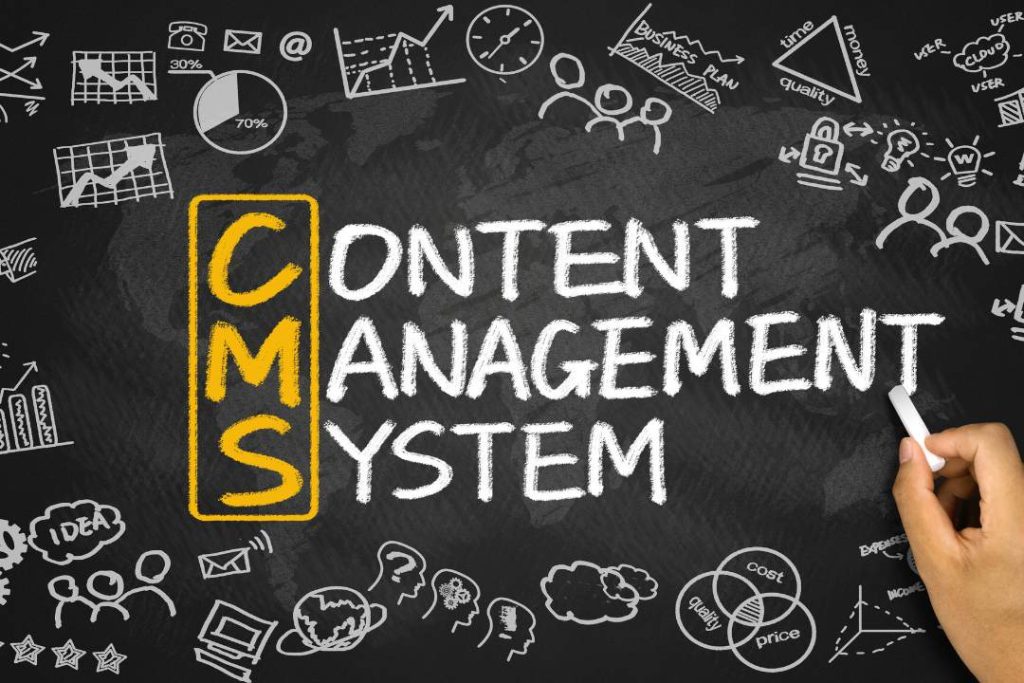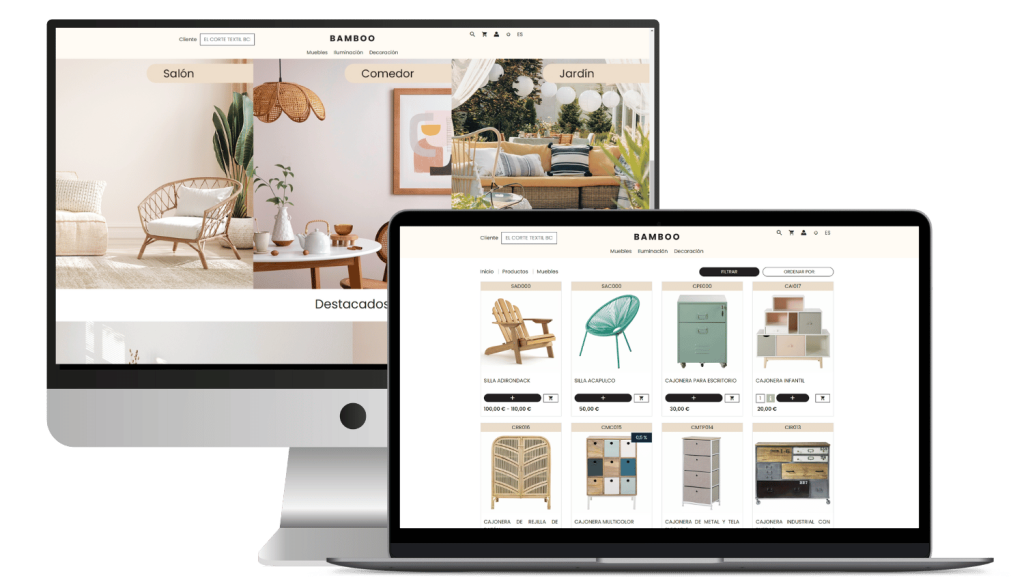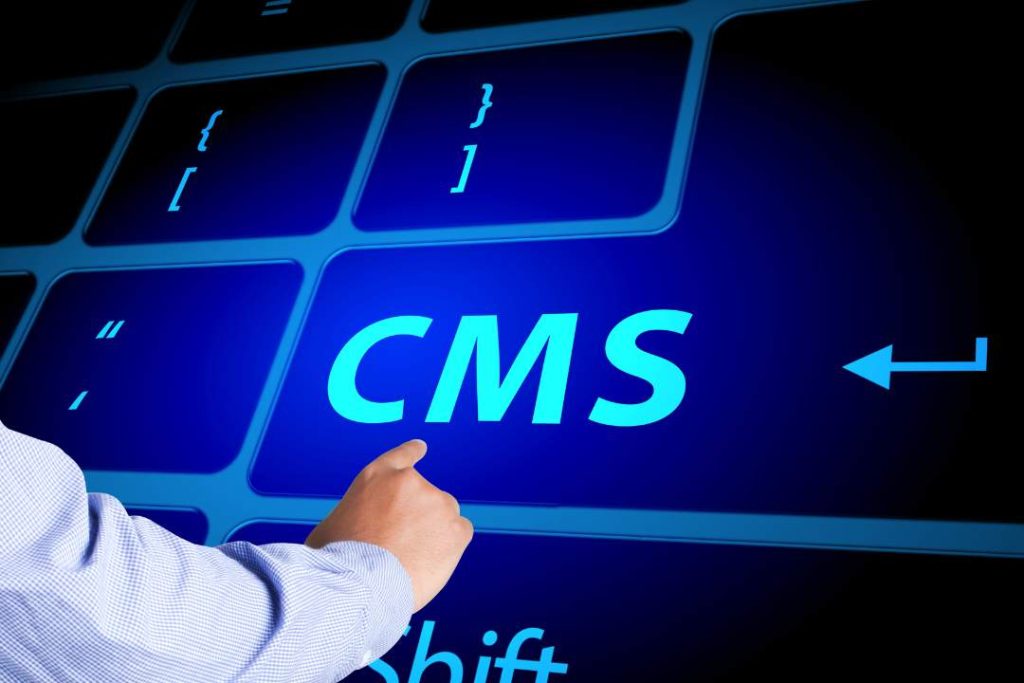¿Cuál es el CMS más adecuado para tu tienda?

La elección del sistema de gestión de contenido (CMS) adecuado es crucial para el éxito de cualquier tienda en línea, especialmente en el sector B2B, donde las necesidades y exigencias pueden variar significativamente respecto al mercado B2C. Este artículo te guiará a través de las características esenciales que debe tener un CMS para tiendas B2B, comparará las opciones más populares del mercado y ofrecerá una guía paso a paso para seleccionar la mejor solución para tu negocio.
Entendiendo las necesidades de tu negocio B2B
Antes de elegir un CMS, es importante comprender las características únicas y los desafíos de tu negocio B2B. Las empresas B2B a menudo enfrentan complejidades en la gestión de pedidos, personalización de precios, y la integración con otros sistemas empresariales. Un CMS ideal para B2B debe ser capaz de manejar estas complejidades de manera eficiente y escalable.
Características esenciales de un CMS para tiendas B2B
Gestión eficiente de grandes volúmenes de productos
El CMS debe poder manejar fácilmente grandes catálogos de productos con variaciones complejas sin afectar el rendimiento del sitio. La capacidad de actualizar y gestionar productos de manera masiva es esencial para minimizar el tiempo de administración y maximizar la eficiencia.
Integración con otras plataformas B2B
La capacidad de integrarse sin problemas con sistemas ERP, CRM y otras plataformas es crucial para automatizar y sincronizar procesos de negocio. Esto reduce errores, ahorra tiempo y mejora la experiencia del cliente.
Soporte para precios y promociones variables
En el comercio B2B, los precios pueden variar significativamente entre clientes debido a contratos específicos, volúmenes de compra y promociones temporales. El CMS debe ofrecer opciones flexibles y potentes para gestionar precios y descuentos personalizados.
Integra tu ERP con un ecommerce B2B con Stoam SaaS


Comparativa de los principales CMS del mercado
Magento
Ventajas y desventajas de Magento para tiendas B2B
Ventajas:
- Alto nivel de personalización y funcionalidad.
Fuerte capacidad de integración con terceros. - Comunidad de desarrolladores activa y numerosas extensiones disponibles.
Desventajas:
- Requiere desarrolladores especializados, lo que puede incrementar los costos.
- Configuración y mantenimiento complejos.
Shopify
Ventajas y desventajas de Shopify para tiendas B2B
Ventajas:
- Fácil de usar y configurar.
- Buenas opciones de integración y seguridad robusta.
Desventajas:
- Menos personalizable sin intervención de aplicaciones de terceros.
- Costos recurrentes por uso de aplicaciones adicionales.
WooCommerce
Ventajas y desventajas de WooCommerce para tiendas B2B
Ventajas:
- Integración perfecta con WordPress, lo que es ideal para quienes ya utilizan este CMS.
- Gran flexibilidad gracias a numerosos plugins y temas.
Desventajas:
- Puede requerir numerosos plugins para funcionalidades esenciales, lo que afecta el rendimiento.
- Soporte dependiente de desarrolladores externos o servicios de terceros.
Prestashop
Ventajas y desventajas de Prestashop para tiendas B2B
Ventajas:
- Buena capacidad de personalización.
- Interfaz intuitiva y buena funcionalidad de gestión de productos.
Desventajas:
- Menor comunidad de desarrolladores en comparación con otras plataformas.
- Puede requerir ajustes técnicos para escalabilidad.
Cómo elegir el CMS adecuado para tu empresa B2B
- Evalúa tus necesidades específicas: Define qué funcionalidades son cruciales para tu operación diaria.
- Investiga y compara opciones: Considera las ventajas y desventajas de cada CMS según tus necesidades.
- Prueba las plataformas: Utiliza demos o versiones de prueba para evaluar la usabilidad y las características.
- Consulta opiniones y casos de éxito: Investiga experiencias de otros usuarios en tu sector para entender mejor los posibles resultados.
- Considera el soporte y la escalabilidad: Asegúrate de que el CMS pueda crecer con tu negocio y ofrecer asistencia cuando sea necesario.
Transforma tu ERP en un poderoso ecommerce B2B


Preguntas más frequentes
La decisión entre funcionalidad y facilidad de uso depende de las necesidades específicas de tu negocio y de los recursos disponibles para la gestión del CMS. Si tu equipo tiene habilidades técnicas limitadas, un CMS fácil de usar puede ser más beneficioso. Sin embargo, si necesitas características específicas para manejar procesos complejos, prioriza la funcionalidad.
Para asegurar una buena integración, selecciona un CMS que ofrezca APIs robustas y documentación detallada. Es crucial también verificar las integraciones preexistentes y los plugins disponibles. Considera la posibilidad de trabajar con un desarrollador o una agencia que tenga experiencia en integraciones entre el CMS elegido y otros sistemas empresariales.
Una solución personalizada ofrece la ventaja de adaptarse perfectamente a tus necesidades específicas, pero puede ser más costosa y tardada en desarrollar y mantener. Una plataforma lista para usar es generalmente más económica y rápida de implementar, pero puede requerir compromisos en términos de personalización y flexibilidad.
Evalúa el soporte técnico revisando las políticas de soporte del proveedor, incluyendo los niveles de servicio ofrecidos (SLA), la disponibilidad de soporte técnico (24/7, solo días hábiles, etc.), y las reseñas de otros usuarios sobre la calidad y la rapidez del soporte.
La seguridad es crucial, especialmente para las transacciones B2B que pueden manejar datos sensibles. Busca un CMS que ofrezca actualizaciones regulares de seguridad, características robustas de autenticación y autorización, y cumplimiento con normativas relevantes como GDPR. Considera también la reputación del proveedor en cuanto a la gestión de vulnerabilidades.
Conclusión
En este contexto, Stoam SaaS emerge como una solución ideal, especialmente diseñada para el comercio mayorista B2B. Stoam SaaS se integra perfectamente con tu ERP existente, alimentando un poderoso portal de ventas que optimiza la experiencia del usuario y maximiza la eficiencia operativa. Con Stoam SaaS, puedes disfrutar de una plataforma que se adapta a tus necesidades y evoluciona con tu negocio.
Stoam SaaS puede ayudarte a alcanzar tus objetivos de comercio electrónico y si deseas más información sobre nuestras soluciones, no dudes en contactar con nuestro equipo. Estamos aquí para ayudarte a simplificar y potenciar tu comercio B2B.
Compartir:
Related Articles

What is a marketplace? Find out how to get the most out of it
What is a marketplace? Find out how to get the most out of it In today’s digital world, marketplaces have

Business to consumer (B2C): how it works and how it differs from B2B
Business to consumer (B2C): how it works and how it differs from B2B In today’s world, e-commerce and direct business-to-consumer

Alibaba revolutionises B2B commerce with ‘Accio’ – the AI-powered search engine for SMEs
Alibaba revolutionises B2B commerce with ‘Accio’ – the AI-powered search engine for SMEs Share: Tabla de contenidos What is Accio

Examples of market segmentation: How to apply it in different sectors?
Examples of market segmentation: How to apply it in different sectors? In today’s competitive business landscape, market segmentation is more

Omni-channel strategy: How to integrate all channels to improve customer experience
Omni-channel strategy: How to integrate all channels to improve customer experience In a world where consumers use multiple channels to

What are open APIs and their role in SaaS solutions?
What are open APIs and their role in SaaS solutions? Open APIs have transformed the way businesses use software, especially

Analysis of B2B marketplaces: Are they an opportunity or a threat?
Analysis of B2B marketplaces: Are they an opportunity or a threat? B2B marketplaces are transforming the way companies buy and

How to use chatbots in B2B ecommerce to improve conversions
How to use chatbots in B2B ecommerce to improve conversions In the world of ecommerce B2B (Business to Business)shopper expectations

ERP and sustainability: How a system can reduce environmental impact
ERP and sustainability: How a system can reduce environmental impact Sustainability has become a crucial priority in today’s business landscape.
Automatiza los pedidos con el ecommerce b2b de Stoam SaaS

